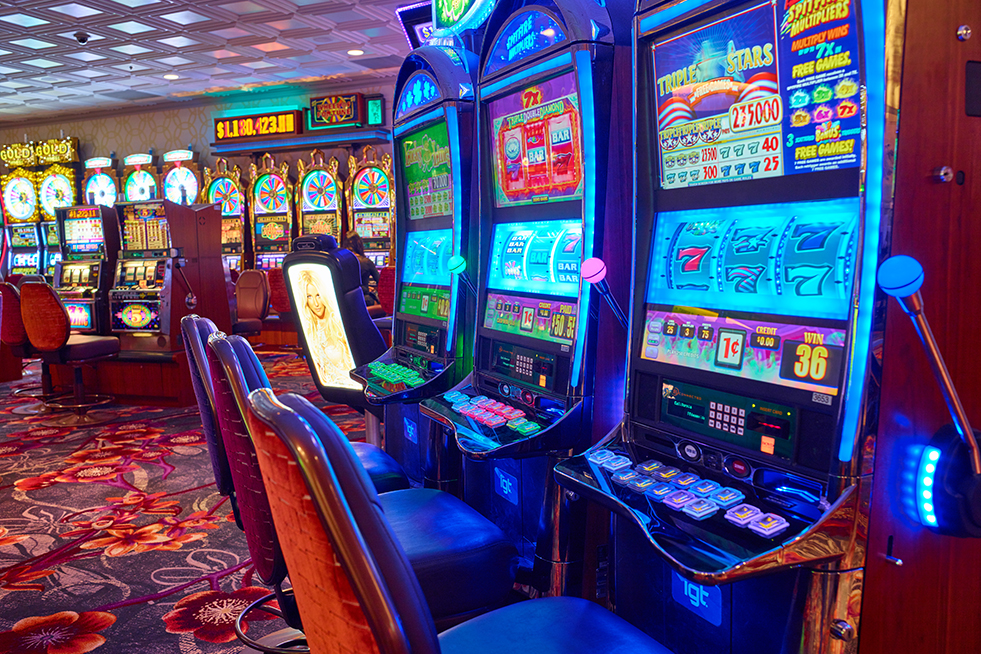In the colorful world of casinos, few games grasp the interest and thrill of players as much as slot machines. The bright lights, enticing sounds, and the thrill of potentially hitting a jackpot render casino slots a preferred choice for many people. However, beneath the captivating exterior lies a complex system known as slot algorithms that determines how these games operate. Bắn cá Bet88 Comprehending how these algorithms work boosts the appreciation for the game and aids players make more informed choices.
This article is taking a deep dive into the functionality of slot algorithms, unraveling the intricacies that govern everything from reel spins to payout rates. We’ll explore how randomness is obtained, the role of RTP, and the diverse types of slot machines available today. Whether you are a seasoned player or a newcomer eager to discover more about casino slots, this exploration will provide valuable insights into how these cherished games work.
Understanding Machine Mechanisms
Machine mechanisms are the backbone of casino slot games, determining how each spin yields results. At the center of these algorithms are RNGs, or RNGs, which confirm that each turn is totally arbitrary and independent from the previous spin. This arbitrariness is crucial for maintaining fairness in the game, enabling players to have a reasonable anticipation of success based on chance rather than foreseeable outcomes.
In also to random number generators, machine mechanisms use different programming techniques to control the game’s mechanics. The RTP percentage, or RTP, is a key factor that players should take into account. This figure represents the average amount of money that players can hope to win back over the long term. For illustration, a machine with an RTP of 96% will hypothetically give back 96 USD for each 100 USD bet, although actual results can differ greatly in the short term due to the randomness of each turn.
Additionally, slots feature elements like volatility and strike rate, which shape the player’s journey and potential payouts. High volatility slots deliver greater jackpots but less regular payouts, while low volatility machines offer more steady, lesser payouts. Understanding these elements enables players select the games that fit with their strategies and appetite, ultimately improving their experience in the gaming machines game.
Types of Slot Machines
Slot machines come in various types, each offering unique gameplay experiences. The classic slot machines, often referred to as fruit machines, are characterized by their simple design with 3-reel configurations and a few number of paylines. These machines typically feature traditional symbols such as fruit icons, bars, and number seven. They are designed for players who enjoy a straightforward gaming experience without complex bonus features. The appeal of classic slots lies in their nostalgia and simplicity, making them well-liked among both novice and seasoned players.

Modern video slots have revolutionized the casino slots game landscape by incorporating cutting-edge graphics, animations, and engaging themes. These machines usually feature five or more reels and several paylines, providing players with a variety of ways to win. Video slots often include captivating bonus rounds, free spins, and engaging features that enhance the overall experience. This type of slot machine caters to a broad spectrum of players, as they can find games based on popular movies, gaming franchises, or fantasy worlds, making the gameplay more engaging.
Progressive jackpot slots are another exciting variant that attracts those looking for life-changing wins. In these machines, a tiny portion of each bet contributes to a growing jackpot that continues to grow until someone strikes it rich. Progressive slots can be found in both traditional and video formats, and they often come with diminished base payouts but offer the enticing chance to win massive prizes. This combination of high risk and high reward is appealing to players who seek excitement in their casino slots gaming adventure.
The Importance of Randomness in Slot Machines
In the universe of casino slots games, chance is the heartbeat that guarantees each spin is unique and erratic. This element is vital because it creates the anticipation of potential wins and keeps participants absorbed. The randomness is usually generated by Random Number Generators, which are algorithms designed to generate a stream of numbers that do not have any regular pattern. This technology simulates the unpredictability of traditional mechanical slots, guaranteeing that modern digital games maintain the same level of thrill.
Every time a player pushes the button to spin, the RNG determines the outcome of that particular spin, determining the symbols that appear and whether a player will receive any rewards. This means that each spin operates independently from the last spins, and the odds remain constant regardless of the results of previous rounds. This characteristic of randomness prevents players from formulating systems that could outsmart the house edge, supporting the notion that slots are games of chance where luck plays a significant role.
In addition, the integration of randomness in casino slots games also promotes honesty and equity. Game developers must follow strict guidelines, ensuring that their RNGs produce findings that are authentically random and impartial. Bet88 This dedication to integrity helps build trust between players and casinos, giving them faith that every spin offers a equal chance at winning. Ultimately, the role of randomness not only powers the excitement of casino slot machines but also protects the equity essential to their appeal.
